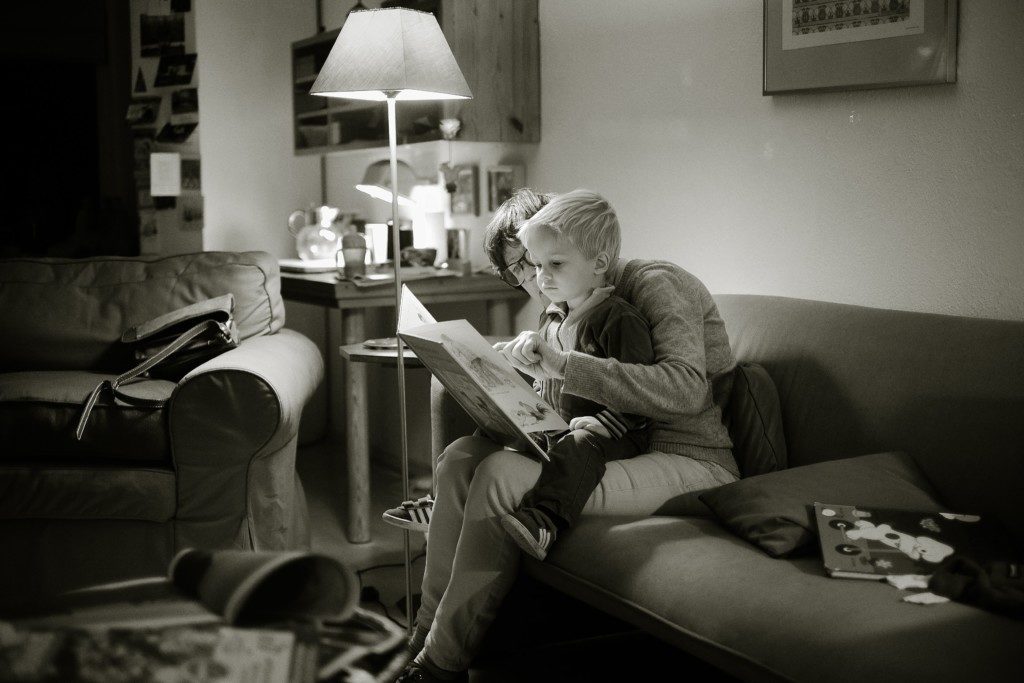As a little girl, I loved “The Paper Bag Princess,” a story about a princess named Elizabeth who single-handedly defeats the dragon that had destroyed her castle and kidnapped her prince. But when she rushes in to save Prince Ronald, he is put off by her shabby appearance — having just outwitted a dragon — and tells her to come back when she looks like a real princess. She replies by telling him that he’s a bum, and the book ends with “And they didn’t get married after all.”
I loved it because the clever and bold Elizabeth was a refreshing alternative to princesses who were fancy and passive (two things I was not). But in retrospect, I feel sold short: I was challenged to be more, without expecting men to be more, too. As an adult and mom who now reads this book to my two boys, I realize it’s missing their role model. “Don’t be a bum” is a poor excuse for a moral; where is the alternative to Prince Ronald?
We continue sending bold smart women out into a world of men who haven’t redefined their own roles. We’re missing half the puzzle, and that continues to hold back our boys and our girls. As Claire Cain Miller wrote in her New York Times guide to raising feminist sons, “Men are falling behind in school and work because we are not raising boys to succeed in the new, pink economy.” The actor Michael Ian Black said it well in his recent op-ed, The Boys Are Not All Right. Boys are trapped, he writes, “and they don’t even have the language to talk about how they feel about being trapped, because the language that exists to discuss the full range of human emotion is still viewed as sensitive and feminine.”
How do we raise boys to succeed, in work, life, and love?
Sorting through all the recent literature on this topic can be daunting, especially when you’re just trying to get through the day with kids. So, here are three (evidence-based) approaches I try to focus on with my sons, maybe you can, too.

1. Talk to his dad (and grandpa, uncle, and other male role models).
I’m smarter now than princess Elizabeth. I know I need a team, and I’m building one with my husband — I talk to him and share articles about why and how to raise sons differently (fatherly.com is a good place to start). I’m lucky I married a good guy, and he’s with me in this project, but it’s not always easy (for either of us): As Black writes, “I want to show [my son] what it looks like to be vulnerable and open, but I can’t. Because I was a boy once, too.” That’s where we come in, moms, helping the men in our kids’ lives be vulnerable and open role models will help shift the tides. Sometimes, I ask my husband, “How would you talk to him about X if he were a girl?” He says it has helped shift his perspective.
Remind those men that they don’t always have to be models, as mentors men can help boys learn from their own mistakes. Just like Yoda tells an aging Luke Sky Walker in the most recent Star Wars film “We are what they grow beyond.” In other words, be honest about your failures and teach what you’ve learned from them.
2. Teach him to be comfortable with emotions — his own and others.
Let him cry; help him name why. Knowing the difference between being sad, hurt, and scared is part of understanding emotions, and that has to start early. The gender gap in school performance is well-documented (boys are less likely than girls to finish high school or college), and it’s largely caused by what researchers call “non-cognitive skills” aka emotional intelligence — things like self-control and empathy. Researchers have also shown that one of the most important factors in improving these non-cognitive skills is how much time parents spend with kids, and that’s even more true for boys than for girls.
Tony Porter, founder of A Call to Men, an organization that aims to redefine manhood, said that if he could have a parenting “do-over” with his son, he would “allow him to cry and be emotional, and then discuss appropriate options.” That’s a good strategy for parents who are worried about overindulging tears, too. (Developmental Psychologist Ashley Soderlund calls it ACT — Acknowledge, Connect, Teach.) And yes, moms, your input matters here: A researcher at Arizona State University who followed 426 boys through middle school found that “boys who remained close to their mothers did not act as tough and were more emotionally available.”
3. Teach him to care for himself and others.
Though I am raising a house of boys, you’d better believe they have baby dolls, a doll house, and a play kitchen because those toys help to develop nurturing skills and because that’s part of the whole human experience. Miller, who covers gender issues for The New York Times, writes that “Women still do more of the caregiving — for children and for older people — and the housework, even when both parents work full time, data show.” Teaching boys to do housework and “carework” is part of elevating traditionally feminine work, but it’s also part of letting men be whole people.
How do you do it? With young kids, make sure they have opportunities and encouragement. Carework fits easily into pretend play: Feed that baby doll some milk, help put it to sleep, serve some Play-Doh spaghetti for dinner. And as boys grow, give them real responsibilities like caring for a pet or visiting an elderly person. In our family, our 2½-year-old boys gain a lot from visiting their great-grandmother, who is nearly blind. They sing with her and even help feed her.
Our boys deserve to be whole people, not bums. It’s our children’s generation that will redefine masculinity. As their mothers, it’s up to us to give them the space and skills to do that.
















masculinity was never about being a bum and therefore has never needed to be ‘redefined’ especially when that redefinition requires making them more like girls. i get your whole ‘rebel princess’ admiration but the reality is when kids get trapped in a cave dudes are expected to put their lives on the line to rescue them, not rebel princesses. men have been reared to be expendable; they are the majority in the most dangerous jobs and they are the majority who die in war.
as you can assume, i am not a feminist. in fact i think the whole movement has been a betrayal to the sisterhood. there are a good many unhappy females today, a good many who will not marry by mid age and who will never have children. they are the 2nd wave generation; the ‘sex in the city’ generation if you will. that show is a good representation of gen x feminists; only two have marriages and only two have children and only one has enough children to replace her and her husband to society. men and women are to complement each other, they are not interchangeable. so no, i won’t be teaching my son this and i will be advising against him marrying any woman who has been reared this way. one thing i do agree with however; i will be teaching him to keep house, that’s just common sense.
masculinity was never about being a bum and therefore has never needed to be ‘redefined’ especially when that redefinition requires emasculating them. i get your whole ‘rebel princess’ admiration but the reality is when kids get trapped in a cave men are expected to put their lives on the line to rescue them, not rebel princesses. men have been reared to be expendable; they are the majority in the most dangerous jobs and they are the majority who die in war and rescue. they are also expected to pay for most dating expenses. I have rarely heard a feminist blogging about splitting every single date expense down the middle.
as you can assume, i am not a feminist. in fact i think the whole movement has been a betrayal to the sisterhood. there are a good many unhappy females today, a good many who will not marry by mid age and who will never have children even though they wanted them. they are the 2nd wave fems; the ‘sex in the city’ generation if you will. that show is actually a good representation of gen x feminists; only two married and only two have children and only one has enough children to replace her and her husband to society.
men and women are to complement each other, they are not interchangeable. so no, i won’t be teaching my son this and i will be advising against him marrying any woman who has been reared this way. one thing i do agree with however; i will be teaching him to keep his house and be polite to others, that’s just basic manners and common sense, another old fashioned concept.
Comments are closed.